| Reviews & Columns |
|
Reviews DVD TV on DVD Blu-ray 4K UHD International DVDs In Theaters Reviews by Studio Video Games Features Collector Series DVDs Easter Egg Database Interviews DVD Talk Radio Feature Articles Columns Anime Talk DVD Savant Horror DVDs The M.O.D. Squad Art House HD Talk Silent DVD
|
DVD Talk Forum |
|
|
| Resources |
|
DVD Price Search Customer Service #'s RCE Info Links |
|
Columns
|
|
|
Power and the Prize (Warner Archive), The
Satisfying, if a bit wobbly, 1950s big business romance. Warner Bros.' fun Archive Collection of hard-to-find cult and library titles has released The Power and the Prize, the 1956 Metro-Goldwyn-Mayer drama starring Robert Taylor, Burl Ives, Cedric Hardwicke, Mary Astor, Charles Coburn, and "introducing" Swiss actress, Elisabeth Muller. Not nearly as well-known as other 1950s hymns to American corporate/bedroom shenanigans, such as Executive Suite or The Man in the Gray Flannel Suit, The Power and the Prize has some pretty fascinating undercurrents that it fails to properly exploit, while new find Muller is, well...annoying as hell. Still, Robert Taylor is smoothly authoritative (as always) as a New York businessman with a conscience, as director Henry Koster blandly keeps things bumping along at a good pace. An original trailer is included in this only-okay black and white CinemaScope transfer.
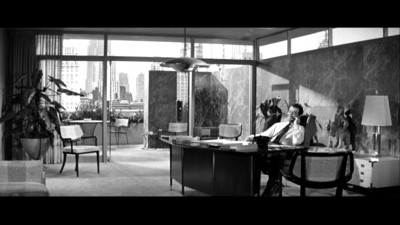
The canyons of New York City, 1956. Amalgamated World Metals Chairman George Salt (Burl Ives) has everything all planned out. Devoid of friends or co-workers he trusts save for one, Vice Chairman Cliff Barton (Robert Taylor), Salt has not only groomed Barton for the top spot at AWM, but he's also given his beautiful, compliant ward and niece, Joan (Nicola Michaels), to Barton with his blessings. There's just one final test Salt has in store for Barton, a test designed to see if Barton has the balls to be not just the best...but feared--the ultimate "prize" for a creature of power like Salt. Barton is to go to England--two days before his wedding to Joan--and secure a deal with Carew (Sir Cedric Hardwicke), of Carew Steel Ltd.. Carew's company has figured out, through a revolutionary "cold smelting" process invented by weasel Chutwell (Ben Wright), how to make a remote ore mine in West Africa profitable, and the cash-strapped British company needs big, fat, post-WWII Yankee dollars as capital investment. Salt wants Barton to reel-in the British just enough to make them see dollar signs, before he returns to America and springs the trap: if Carew wants that ore mine to go through, then Amalgamated gets 52% of the company, with Carew out and Barton in, as chairman. Barton agrees, but he becomes shaky when he meets the affable Carew, who breaks with negotiating tradition to flat-out state he personally likes the smooth, charming Barton. Barton's cut-throat resolve is further undercut when he meets Miriam Linka (Elisabeth Muller). Barton, as a favor to Salt's lonely wife (Mary Astor), investigates a London-based charity she funds called the Artists Refugee Organization. Linka runs it, but she vehemently denies it's a prostitution ring, as Chutwell insinuates to Barton. Barton, immediately taken with Miriam, pursues her romantically, but when rumors about Miriam's political leanings come forth, his decision to not only spill the beans to Carew about his con, but also to bring Miriam stateside to marry her, could spell the end of his time with AWM.
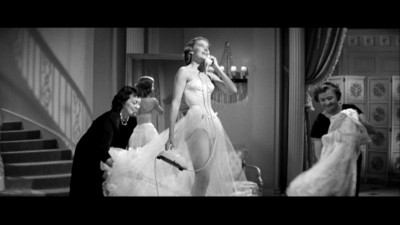
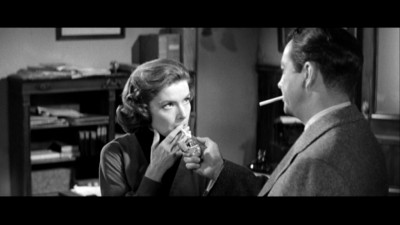
It's tempting to watch The Power and the Prize today and write it off as old-fashioned in its looks at American big business and romance, but quite startling, what I found most chilling (and heartbreaking) about watching this again after last seeing it some 15 years or so ago, is its unintentionally prophetic view of what has since happened to the United States today. You could easily remake The Power and the Prize right now, and simply switch the weak, looking-for-a-handout Brits like Carew for our own debt-ridden, faltering American companies and spend-crazy government, with the cash-soaked, amoral Chi-Coms now substituting for the once all-powerful American businesses that doled out investment capital while buying up the world. Far from old-fashioned, The Power and the Prize pretty much hits it on the head when it comes to how big business works, regardless of who's sitting on top--the only element that feels quaint is the hoped-for idealism in Taylor's approach to profits and love.
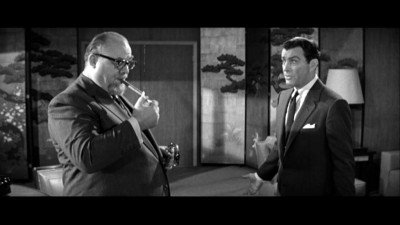
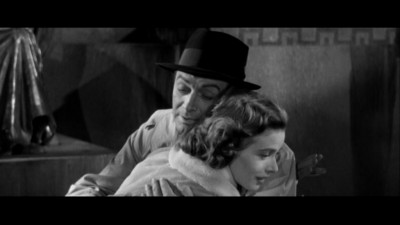
Indeed, there are quite a few intriguing ideas and tangents floating around in The Power and the Prize; it's just a shame that studio pro director Henry Koster (The Robe, The Bishop's Wife, Mr. Hobbs Takes a Vacation) can't seem to rally them into a coherent, cogent whole, either thematically or visually. Koster, shooting M-G-M's first black and white CinemaScope production, mostly fails to inform his frames with any kind of meaningful information, putting his characters squarely in the middle of the vast 'scope frame, with lots of empty, dead space on either side. Whatever ides the screenplay suggests can only be gleaned from listening to the actors recite their dialogue--with mixed results (Koster does have one nice, informed moment, when Ives refuses to listen to Taylor's objections about his amoral business practices, and Koster--or the editor--cuts quickly to the little American flag waving oddly, off center, at the bottom of the West African mine model).
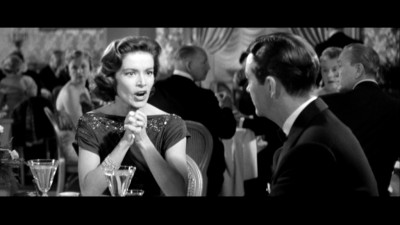
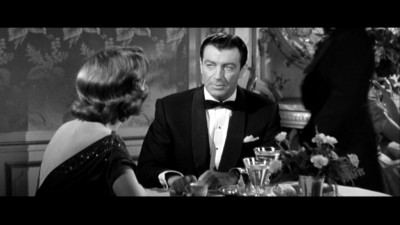
The opening credits clearly prime the viewer for a glossy, sudsy romance within a high-finance setting (all those strings in Bronislau Kaper's opening theme), and then neatly pulls the rug out from the starry-eyed viewer by presenting a deeply cynical view of "corporate marriage" that is soulless and destructive. In some nice cross-cutting, blithe Taylor gets updates on his upcoming wedding like Ives gets updates from Taylor on the W. African project, with Ives assuring Taylor he'll have no trouble marrying Michaels: she knows what's expected of her in her role, and that means Taylor's business will always come first. When Taylor later tells her the marriage is off, Michaels comes back equally amiably with this atypical 1956 Hollywood romance response: the relieved Michaels flatly states Taylor always bored her, and she's glad she doesn't have to marry him. While we're braced by this frank, cold reaction, the pessimism goes deeper when we realize Michaels would have gone through with the sham marriage if not for Taylor's rejection, executing a wedding ceremony like a business transaction that could have resulted in her becoming another lost soul like unloved Astor.
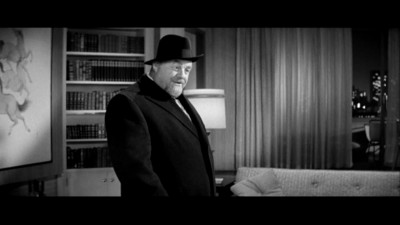
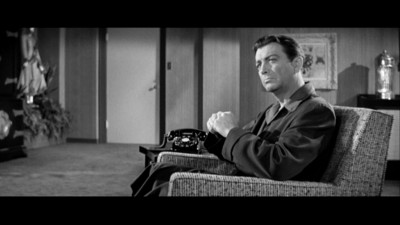
Unfortunately, the other side of this coin--the "true" romance between Taylor and Muller--isn't nearly as believably presented, gummed up by a promising but hopelessly vague subplot concerning possible Communist and prostitution overtones that is awkwardly introduced and incompetently explored (by the end of the movie I still didn't know if she was a Commie or not...), as well as by Muller's rather grating performance. Taylor, an underrated actor whose smooth authority only increased as he aged (for someone "inheriting" Ives' top spot, he looks a good 15 years older than his mentor) pulls off these romance scenes with assured aplomb. However, Muller's hyper-abrasiveness whenever she's yelling about what she hates about America alternates with a cloying over-emphatic delivery whenever she's pleading about what she loves about America, creating a performance that makes us seriously wonder if Taylor wouldn't be better off with calculating-yet-stacked Michaels, after all. You buy Taylor's conflicted stance when it comes to Ives' unscrupulous business practices because Taylor's persona projects such a basic, inherent, thoroughly American decency (to be honest, what Ives asks Taylor to do is Boy Scout-level stuff compared to what really goes down in those steel-and-concrete canyons). However, it's tougher to swallow his instant attraction and infatuation with the off-putting Muller...and that throws the movie further off-center. Luckily, Taylor's poised, cool performance (as well as the rest of the top-flight cast), as well as the more conventional elements of the boardroom battle storyline, keep us reasonably entertained...if not exactly enlightened.
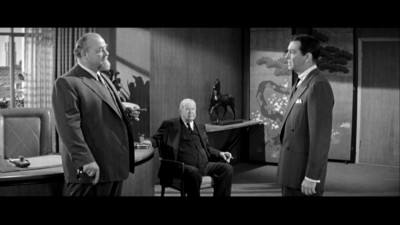
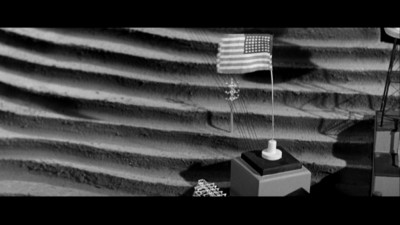
The DVD:
The Video:
The 2.40:1 black and white CinemaScope image is just okay here, with a sometimes hot, contrasty picture, some grain, and some sharpness issues here and there. Not bad...but hardly "flawless."
The Audio:
The Dolby Digital English split mono audio track is acceptable, with a minimum of hiss and reasonable fluctuation. No subtitles or closed-captions are included.
The Extras:
An original trailer is included (its exclusive emphasis on new discovery Müller was clearly a mistake).
Final Thoughts:
Lots of intriguing ideas here...but we'll have to settle for its more conventional pleasures. The Power and the Prize is fortunate to have Robert Taylor anchoring it (along with those other welcome Hollywood vets supporting him), because otherwise its emphasis on hit-and-miss romance among the business elite unfortunately overshadows what could have been a nasty little boardroom drama. Still, Taylor is Taylor, and you'll want to see who prevails at the end; I'm recommending The Power and the Prize.
Paul Mavis is an internationally published movie and television historian, a member of the Online Film Critics Society, and the author of The Espionage Filmography.


|
| Popular Reviews |
| Sponsored Links |
|
|
| Sponsored Links |
|
|
| Release List | Reviews | Shop | Newsletter | Forum | DVD Giveaways | Blu-Ray | Advertise |
|
Copyright 2024 DVDTalk.com All Rights Reserved. Legal Info, Privacy Policy, Terms of Use,
Manage Preferences,
Your Privacy Choices | |||||||













